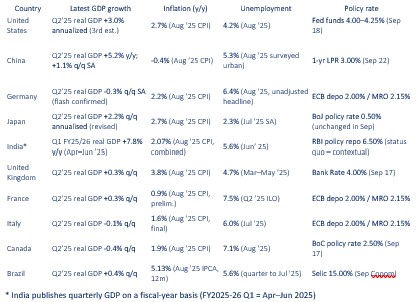Macro Macchiato 27/04/20: Waterloo for the Free Market?
- Mark Williams

- Apr 27, 2020
- 3 min read
When Alice entered the strange and surreal world through the looking glass, she retained the power of rational thought. Perusing her new surroundings, she begins Chapter Three by deciding that “Of course, the first thing to do was to make a grand survey of the country she was going to travel through. It’s something very like learning geography, thought Alice.”
Our Coronaworld is a little like this, a surreal version of the world-that-used-to-be with strange new rules and conventions to be learned.
One method of making a grand survey of this new world becomes available this week as first quarter earnings season is upon us. Listed companies in all sectors from around the world will report on the first 13 weeks of trading this year. Many of their forward looking statements could offer intriguing reading and it could be a wild ride in global stock markets this week.
I am not going to make any investing recommendations (I am not licensed to!) but looking at the landscape of listed companies can prompt consideration of how the global economy has suddenly changed, with winners and losers.
I wonder if certain home utility companies will be winners, benefiting from higher levels of home occupancy during lockdowns. Companies like China Mobile, utility operator CMS Energy and online HR manager Paycom might do well. We already know that online retailers like Amazon have hugely benefited from the legions of at-home workers.
Travel companies are bound to be downbeat, as are the few aeroplane builders left in the world. Energy companies may also be downbeat as oil demand especially has plummeted. I don’t expect any of them will have much to say about how much oil demand will recover or when that might happen. There is a fair possibility that unfortunately a number of them won’t be around to see it.
US Shale oil and gas producers have suffered already and regulators have allowed dozens of shale oil rigs to be shut in without the operators losing their licenses – there simply isn’t another company willing to take on the license. In fact, with the US rig count down 54% from one year ago to 465 active rigs, and WTI oil still cheaper than craft beer, there’s a good chance that the carnage is only just beginning. In North Dakota, home base of the US shale industry, production is already down by a third – around 400 k bpd – with more cuts to follow.
Saudi Arabia and Russia won’t cut their production until Friday this week. Meanwhile every barrel they produce is surplus to the surplus. When Saudi Arabia and Russia kept the taps open they had the US shale sector firmly in their sights. But it was Coronavirus that handed them victory, appearing unexpectedly over the hill like Blücher’s battalions at Waterloo to wipe out 30% of global oil demand. That slaughter won’t be wholly reported in the first quarter numbers of the big energy companies, but I will be on tenterhooks waiting for prognostications of how many more quarters they expect their P&L statements to be damaged.
As the glut of oil continues to choke global storage capacity, the crude oil tanker market continues to benefit as ships are used to store oil either for the duration of their voyage or for an indefinite period without going anywhere. The US Coast Guard videos of oil tankers lined up off California are unprecedented.
It won’t be long now however until non state supported oil drilling just stops. Torbjorn Tornqvist of Gunvor says that mid May could be the peak of the crisis. Refiners are already shuttering facilities. In the US, refinery output is down to around 12 Mn bpd, about the level it was in 1990.
Without state support, privately owned and listed energy companies around the world are going to go bust, perhaps never to return. Even with state support, governments could end up holding stranded assets if demand recovers only slowly.
The winners eventually will be the big state owned enterprises who fill the coffers of their state treasuries. This grizzly bear market is stacked in their favour. And that poses a long-term question, way beyond the quarterly earnings horizon. Will the liberal democracies be willing to underwrite the demise of their industrial base in favour of mercantilist competition?
I suspect the answer is no. If it is, then the liberal democracies have two choices: give state support to their industrial base, or block imports from the mercantilists to protect their industrial base.
Neither option is good from a free markets perspective. But then I suspect that Coronavirus may come to be viewed through the prism of history as the Waterloo when the post-WW2 liberal free market consensus was finally defeated. What comes next won’t be in the quarterly earnings reports.



Comments